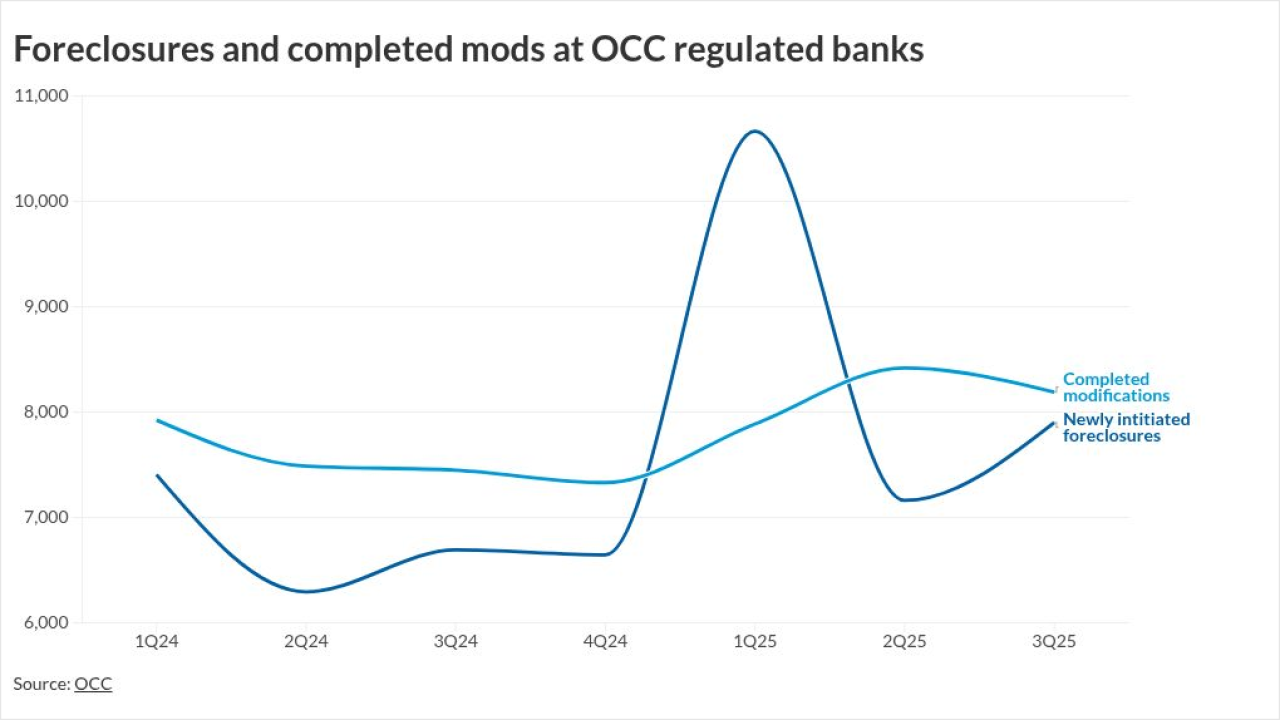Standards & Poor's has revised its outlook on the Chicago, Indianapolis, and Seattle Federal Home Loan Banks from Stable to Negative because of interest rate risk concerns about their secondary-market programs."The higher balance of fixed-rate mortgage loans in the earnings asset mix, combined with sizable investments in fixed-rate MBS, has elevated the interest rate risk exposure to a level that is not commensurate with a bank's current 'AAA' long-term counterparty credit ratings," S&P said. The change in outlook puts S&P in a position to downgrade any of the three banks if they start to have problems managing their mortgage investments in a rising interest rate environment. "We really have to see how they manage through this interest rate cycle," said S&P analyst Jonathan Ukeiley. Chicago FHLBank president Alex Pollock said he understands S&P's interest rate concerns, but that his bank's secondary-market program is performing very well. "We plan to continue on our very successful strategic course," he said. Mr. Pollock also noted that the triple-A rating of FHLBank bonds and discount notes is not affected by S&P's latest action. The rating agency can be found online at http://www.standardandpoors.com.
-
The trade group's letter to FHFA Director Bill Pulte pointed out that lenders were facing credit report price hikes for four straight years.
7h ago -
Hart, who came over from Ellie Mae, starts in the position of Jan. 1, as Tim Bowler moves to a new role within ICE's Fixed Income and Data Services division.
8h ago -
Michael Hutchins, the two-time interim chief executive at the government-sponsored enterprise, will remain with the company in his role as president.
8h ago -
New-home purchase activity rose 3.1% year over year, but dropped 7% from October, the Mortgage Bankers Association said.
9h ago -
Higher unemployment has driven these indications of distress higher but most loans that financial institutions hold in their portfolios are still performing.
10h ago -
Remote work helped fuel migration and erased the loss of rural residents that occurred in the decade prior to the arrival of Covid, Harvard researchers found.
December 15




